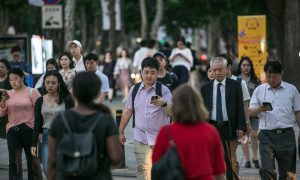As Korea's economy continues to grow and globalization progresses, more and more foreigners are choosing toimmigrantsto Korea in search of better career opportunities. However, while the Korean job market offers a wealth of opportunities in many industries, finding the right job is not an easy task for foreigners. Factors such as cultural differences, language barriers, and visa requirements can all becomeImmigration to KoreaThe challenge of employment.
This article explores in detail how to find a job in Korea, analyzes employment opportunities in different career fields, and offers some practical advice to help you stand out in the Korean job market.
I. Understanding the job market in Korea
South Korea, especially in major cities like Seoul and Busan, is home to globally recognized companies and a growing tech industry. According to the latest employment data from Korea, the following fields are among the most promising industries for foreigners looking for work:
- IT & Technology: Korea is an important base for the global technology industry, and technical personnel are in high demand, especially in the fields of semiconductors, communications, artificial intelligence, game development, and big data. Well-known companies such as Samsung, LG, and Naver usually recruit internationalized talents.
- teachKorea has long had a strong demand for foreign English teachers, especially for English language education, and the TEFL (Teaching English as a Foreign Language) or TESOL (Teaching English to Speakers of Other Languages) certificates are important credentials for entry into the profession. TEFL (Teaching English as a Foreign Language) or TESOL (Teaching English to Speakers of Other Languages) certificates are important credentials for entering the profession.
- Engineering & Manufacturing: As the world's leading manufacturing country, Korea still needs a large number of engineers and technicians in traditional manufacturing fields such as automobiles, ships, and chemicals.
- Medical & Healthcare: As society ages, the demand for doctors, nurses, and other health administrators in the healthcare industry is on the rise, especially in hospitals and clinics in major cities.
- Finance and international trade: Seoul, as one of Asia's financial centers, continues to experience a growing demand for expatriate financial professionals, especially those who are fluent in English or other foreign languages, from banks, securities, insurance and multinational companies.
II. Understanding Employment Visa Policies
For foreigners, finding a job in Korea requires not only meeting basic occupational ability and experience requirements, but also a legal work visa. Depending on the type of occupation and industry you are applying for, it is important to choose the right visa. Below are a few common types of Korean work visas:
- E-2 Visa (Foreign Language Teacher Visa)::
- For foreign teachers who teach English or other foreign languages. This is a common visa option if you want to teach English at a language school or public school in Korea.
- APPLICATION REQUIREMENTS: A TEFL or TESOL certificate is required and you are usually required to have at least a Bachelor's degree.
- E-7 Visa (Professional Visa)::
- For foreigners who have found employment in a specific field of specialization (e.g., engineering, IT, research, etc.) E-7 visa applicants are usually required to provide a job offer from the employer and prove that the field of work is in a shortage in the Korean labor market.
- Application Requirements: A degree in a related field and work experience are required, usually in a highly skilled position.
- D-8 visas (investment visas)::
- If you are interested in starting a company or investing in Korea, the D-8 visa allows foreigners to engage in entrepreneurial activities.
- Application Requirements: You usually need to prove that you have enough money to invest and have a business plan and business plan.
- D-10 visas (work-seeking visas)::
- If you haven't found a job yet, but are already in Korea, you can sometimes apply for a D-10 visa. This visa allows you to seek full-time employment in Korea and is usually valid for six months.
- Application Requirements: Information on education, work experience and resume is required.
III. How to find a job in Korea?
1. Through job boards and job fairs
There are many specialized job boards in South Korea that expats can use to find a job that suits them. Below are some of the commonly used job boards:
- JobKorea: This is one of the largest job boards in Korea, offering job listings in a variety of industries, especially IT, engineering, and education.
- Saramin: Another large job board that offers job filtering features for job seekers in all types of industries.
- WorkNPlay: A recruitment platform for expatriates, especially for industries such as English teaching and international trade.
- LinkedIn: The use of LinkedIn in Korea is also gradually increasing, as is the number of foreigners looking for jobs through LinkedIn, which is particularly suitable for high-level positions and multinational companies.
2. Through socialization and networking
The job market in Korea is very much focused on networking, and many job opportunities are not posted publicly, but rather passed on through social circles of friends, coworkers, or in the industry. Therefore, building a good social network is crucial to finding a job.

- social media: Social platforms such as Facebook and Instagram are widely used in Korea, and LinkedIn is also influential among Korean professionals. Joining relevant industry groups, attending online seminars and industry gatherings can help you broaden your network.
- Industry events and job fairs: Attending career fairs and industry seminars is a great way to meet potential employers and get information about positions. Many chambers of commerce and universities in major cities host these events on a regular basis.
3. Direct application companies
For some large multinationals or local Korean companies, you can visit their recruitment page directly and apply for the position you are interested in. For example, large companies such as Samsung, LG, and Hyundai usually post job openings on their official websites when they are recruiting talent globally. In addition, many companies also participate in job fairs and recruit directly for job seekers.

4. Careful preparation of resumes and interviews
When applying for a job in Korea, it is very important to make sure that your resume is of good quality. Companies in Korea usually have certain requirements for resumes and interviews:
- resume format: Korean resumes are usually in a standardized format and will usually include basic personal information, educational background, work experience, and language skills. The resume should be concise and highlight how well you match the position you are applying for.
- Interview Preparation: Korean companies usually conduct rigorous interviews in which they examine not only your professional abilities, but also your teamwork and cultural adaptability. When preparing for an interview, make sure you familiarize yourself with the company's background and industry, introduce yourself well, and be prepared to show how you will fit into the company culture.
IV. Challenges and response strategies
Despite the many job opportunities available in Korea, expatriates can face a number of challenges in the employment process, notably:
- speech impediment: Although many companies require employees to be fluent in English, Korean is still the most commonly used language in the workplace. Many positions (especially in sales and customer service, etc.) require fluency in Korean.
- cultural difference: The workplace culture in Korea is strict, with clear hierarchical relationships, long working hours, and teamwork emphasizing collectivism. Foreigners who have just entered the Korean workplace may need some time to get used to it.
- Competition in the job market: Popular positions, especially in major cities, are highly competitive and require unique skills or experience to stand out.
response strategy::
- Improvement of Korean language skills: If your level of Korean is not high enough, it is recommended to improve your language skills through language courses, language exchange, and other means.
- Learning Korean Workplace Culture: Understanding Korean workplace culture and behavioral norms will help you integrate more smoothly into the work environment.
- Build good relationships with locals: Broaden your professional circle by attending social events and building relationships with colleagues.
V. Conclusion
Korea's job market is full of opportunities, but also comes with challenges. By understandingKorea Immigrationof the job market, choosing the right visa route, actively utilizing recruitment platforms, building a social network and carefully preparing your resume and interviews, you can greatly improve your chances of finding a job in Korea. We hope this article will help you better plan your career and be well prepared for a successful career in Korea.






